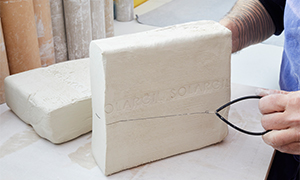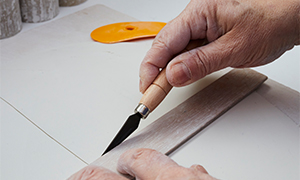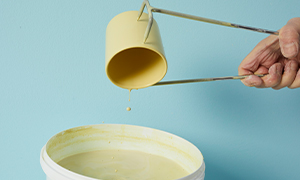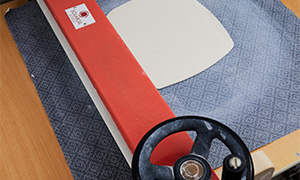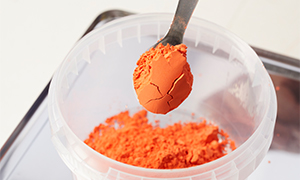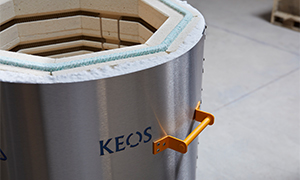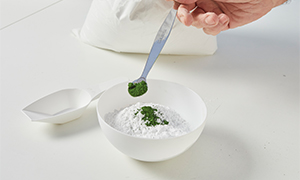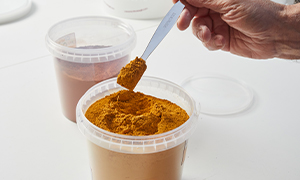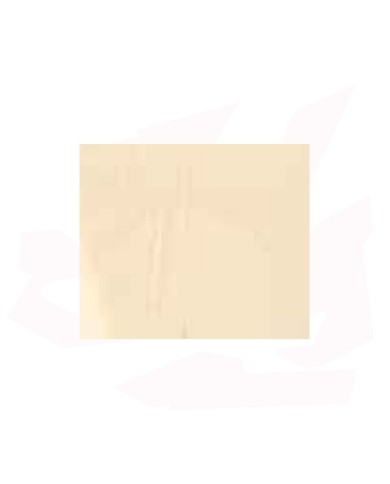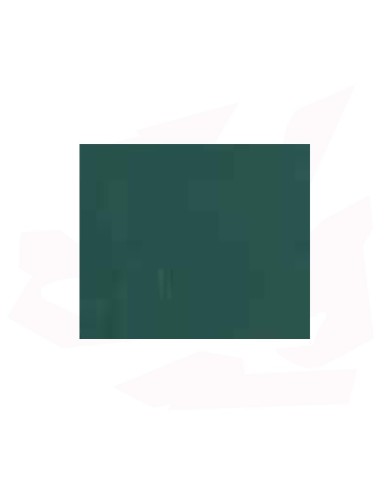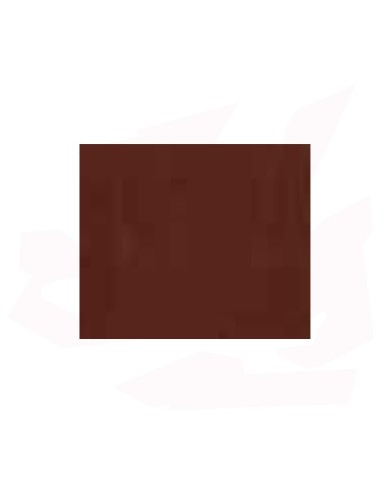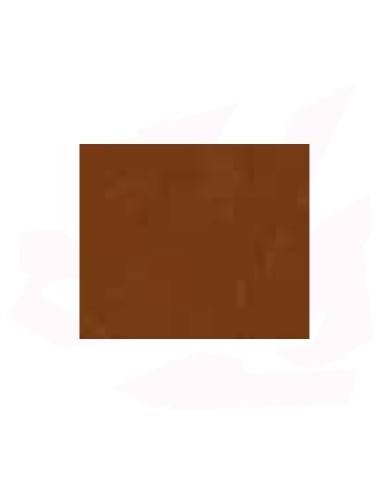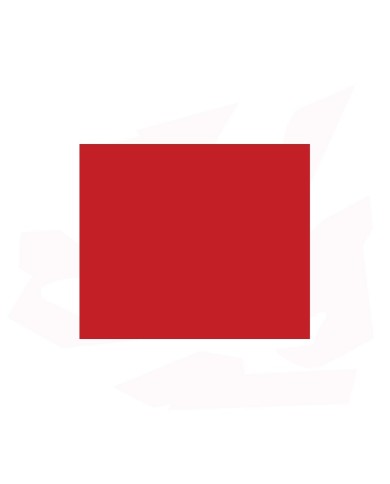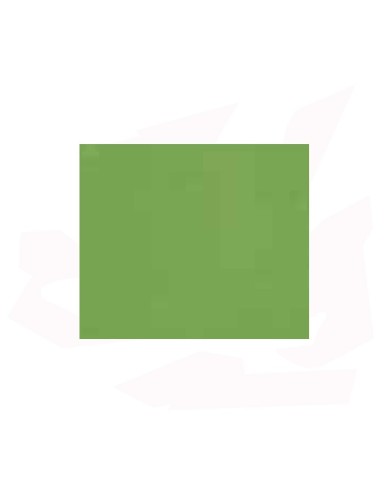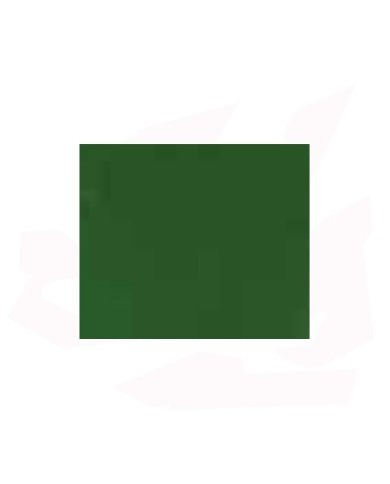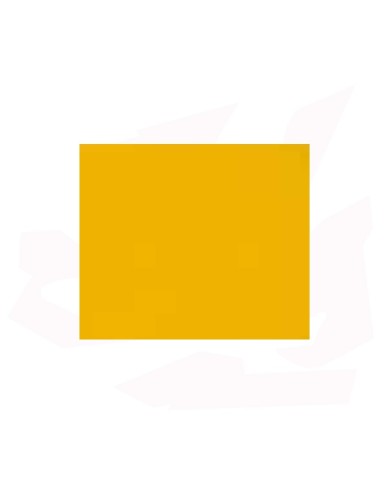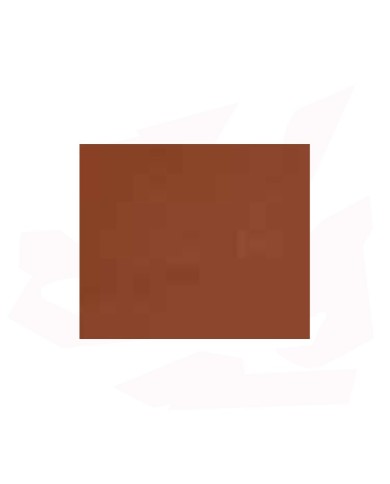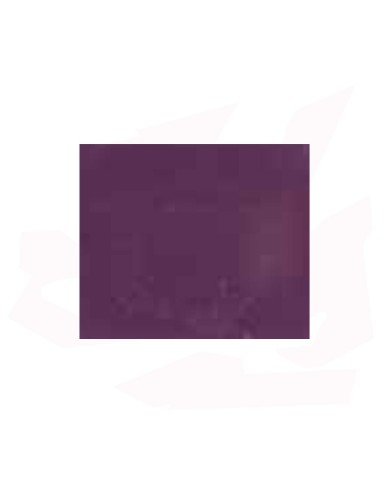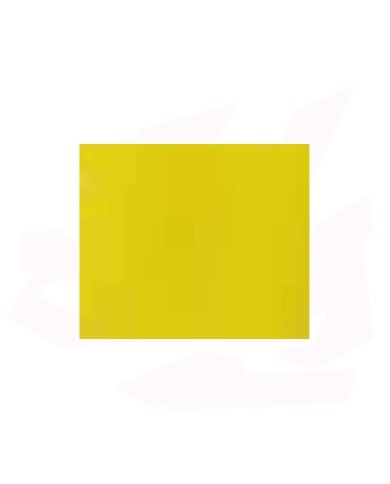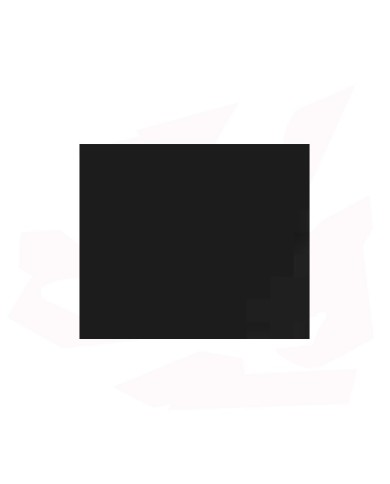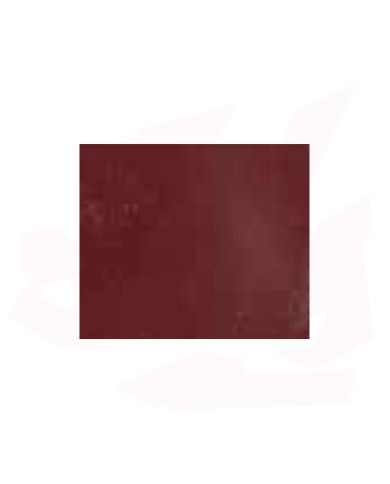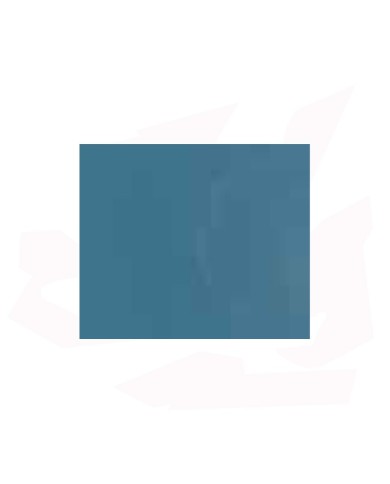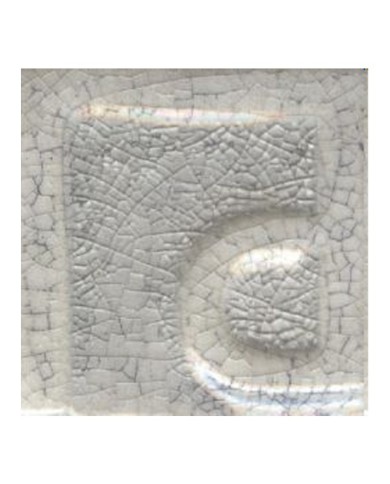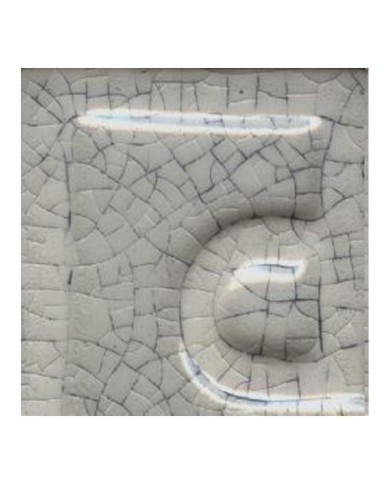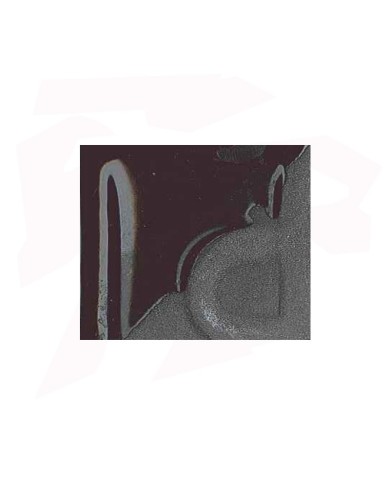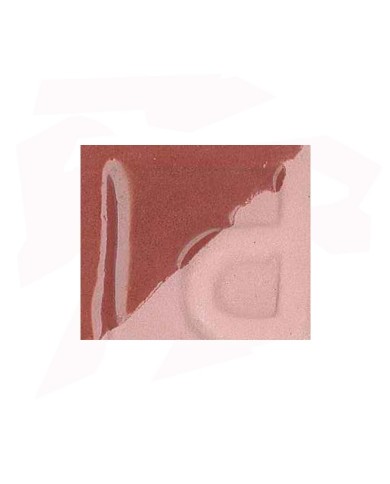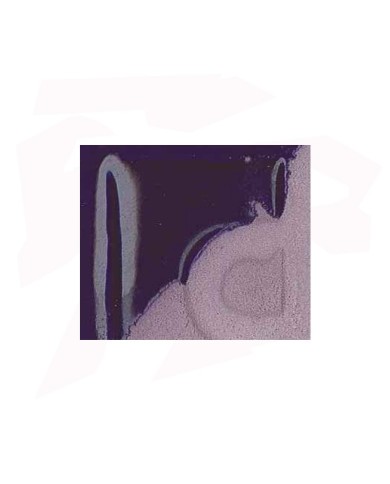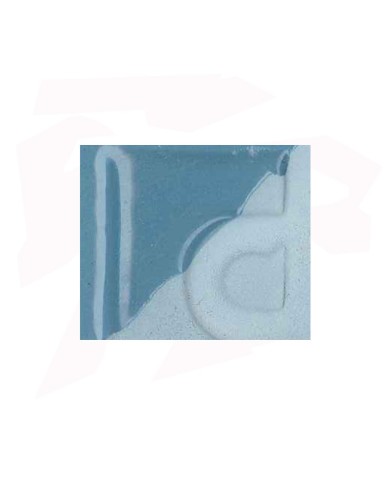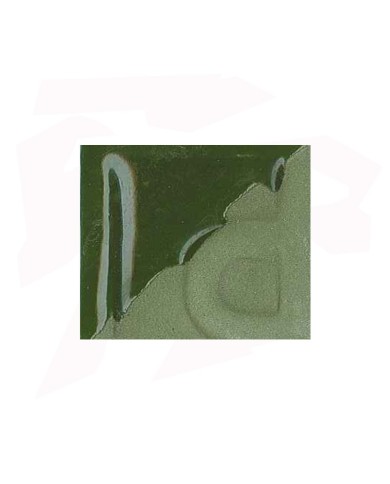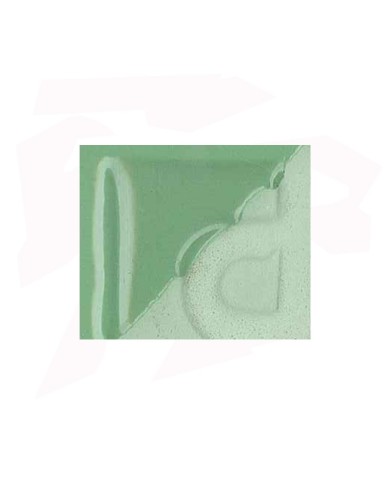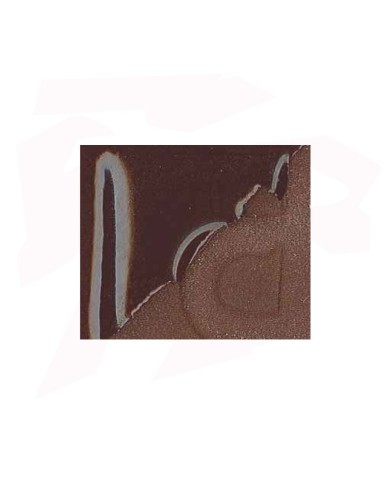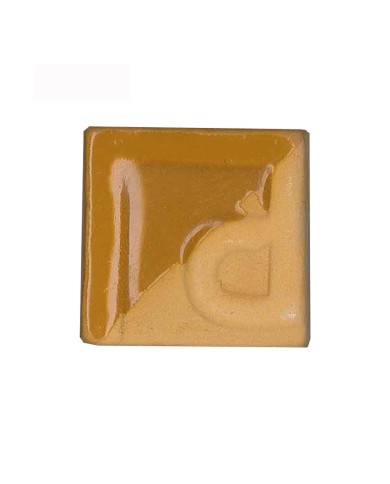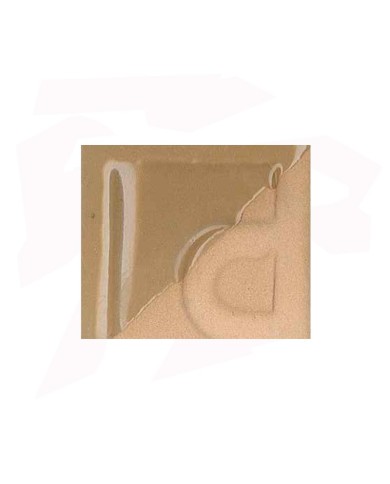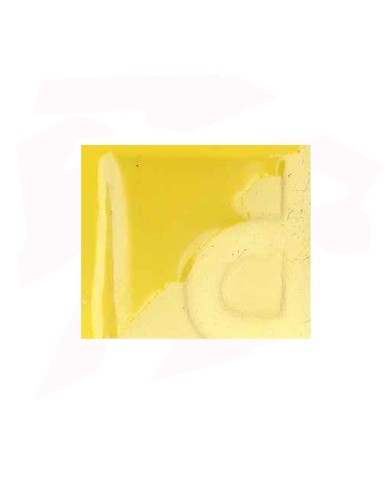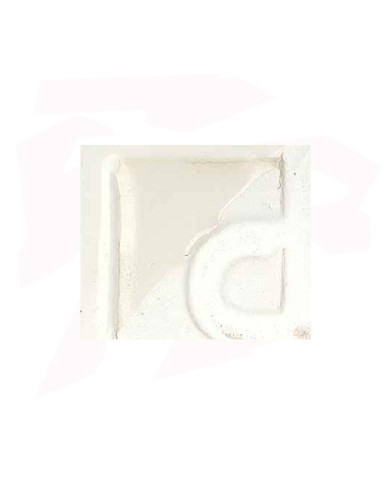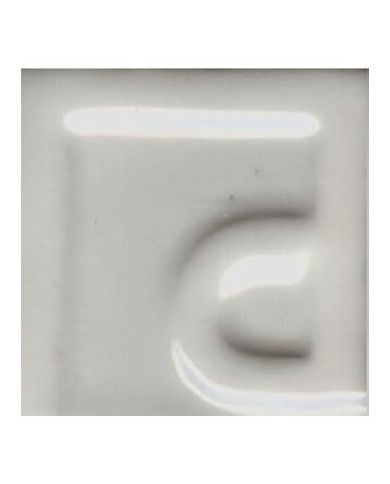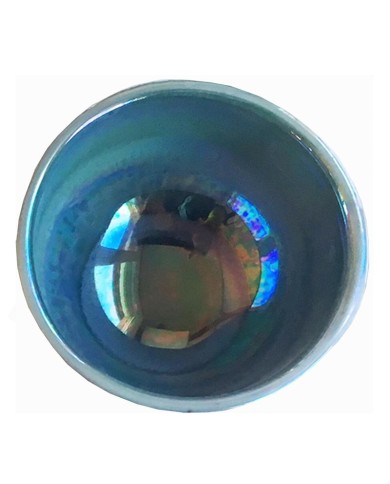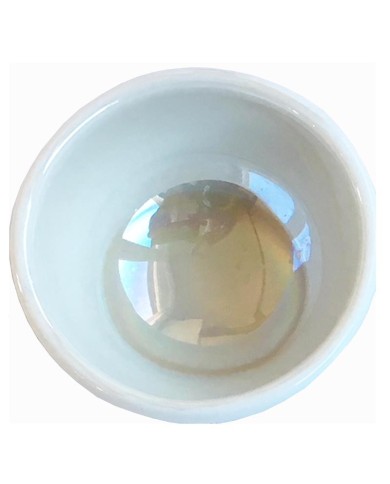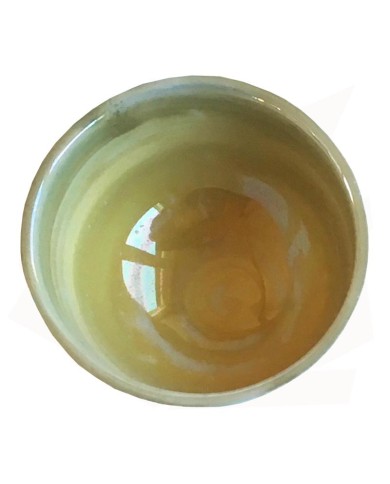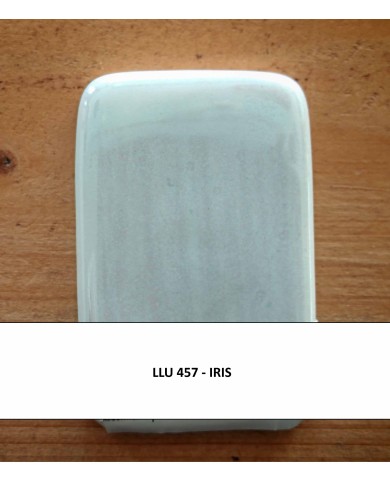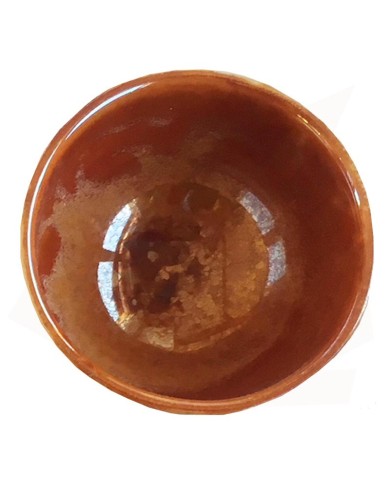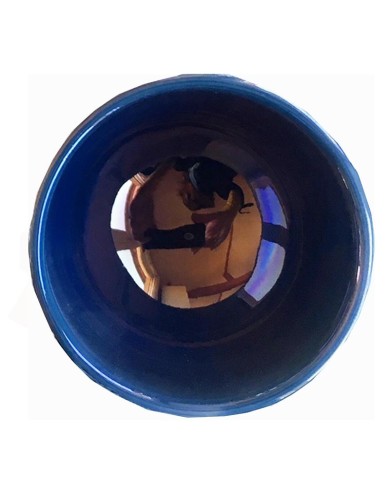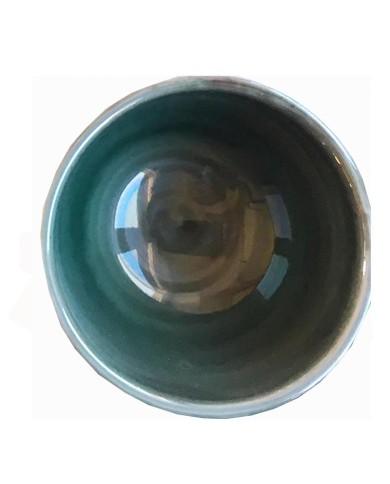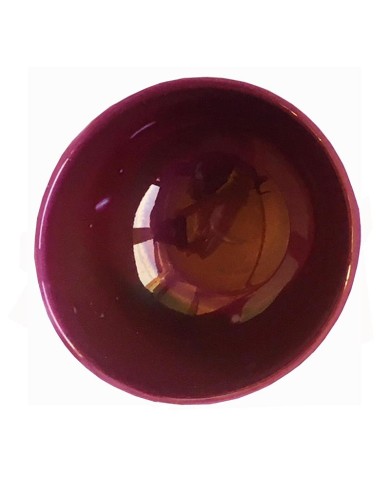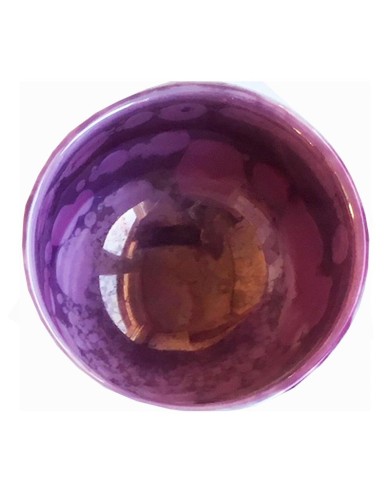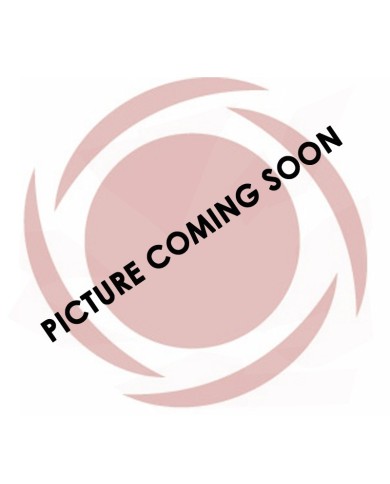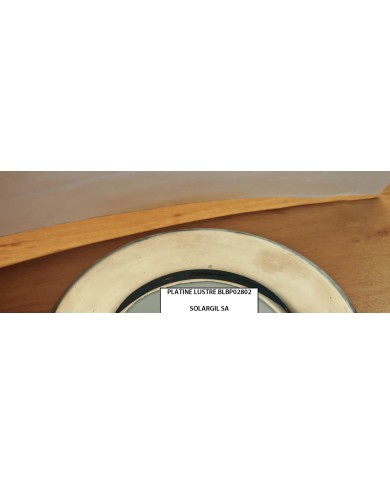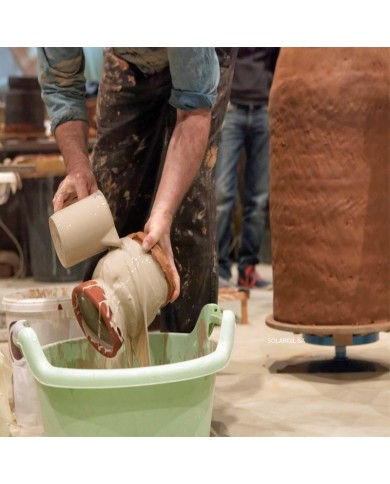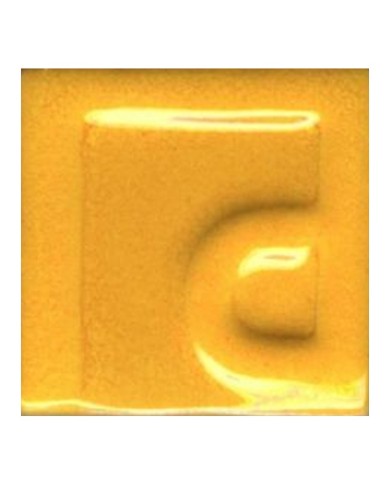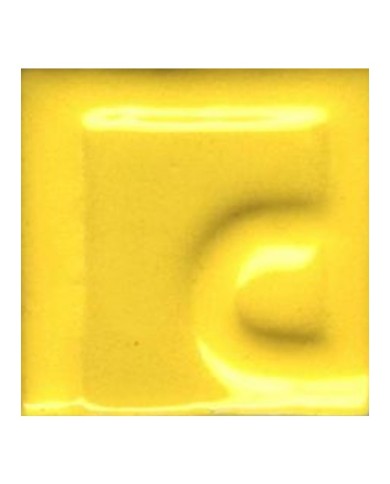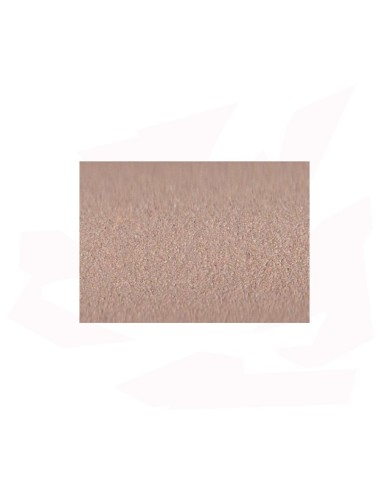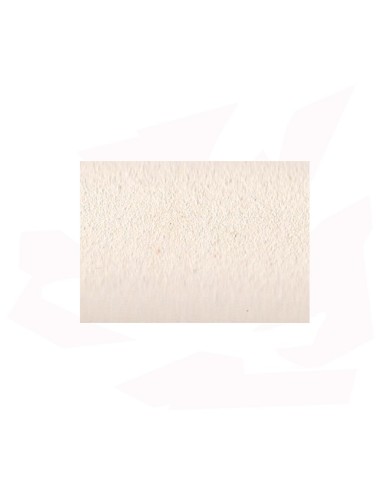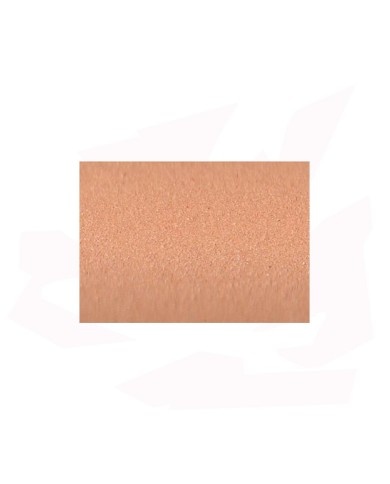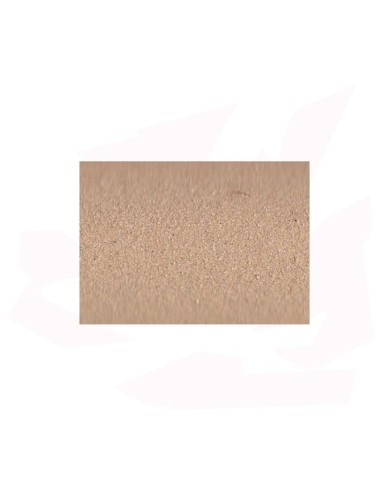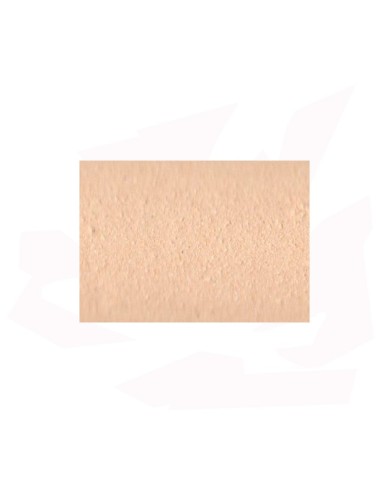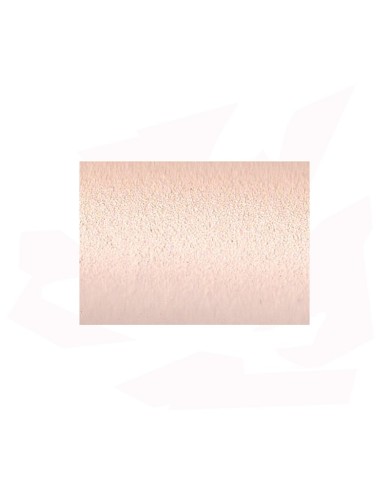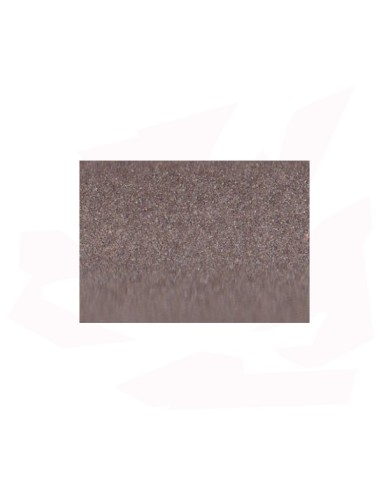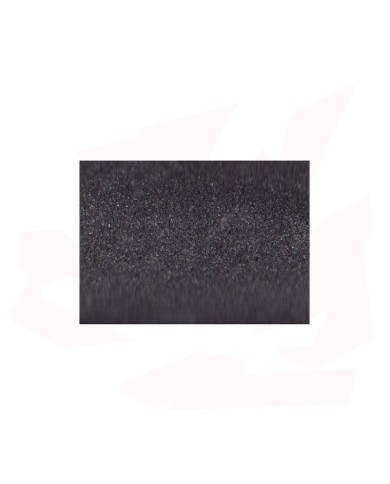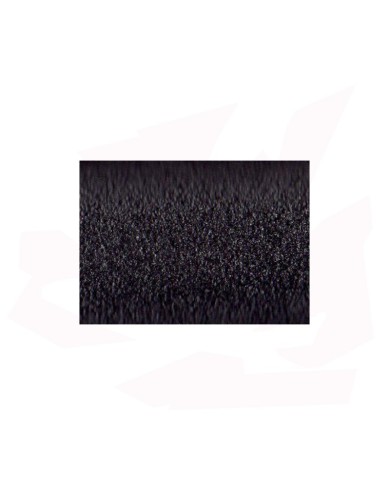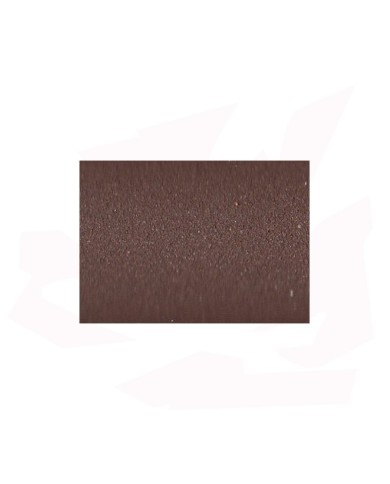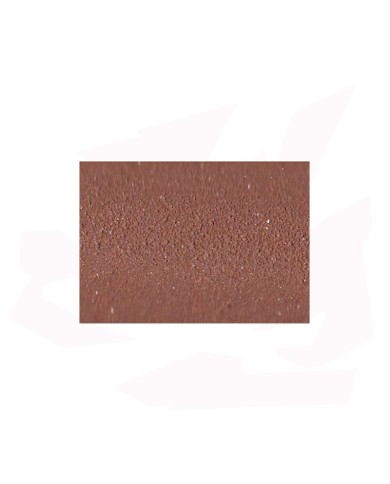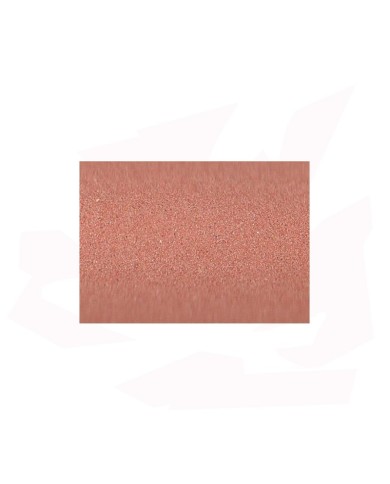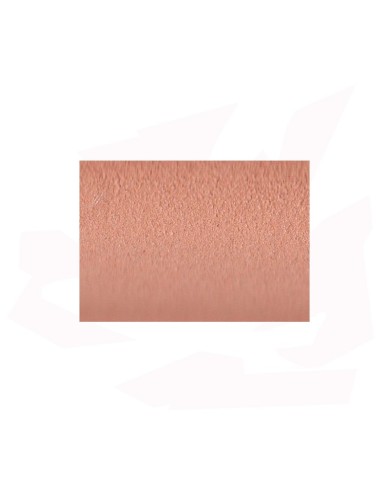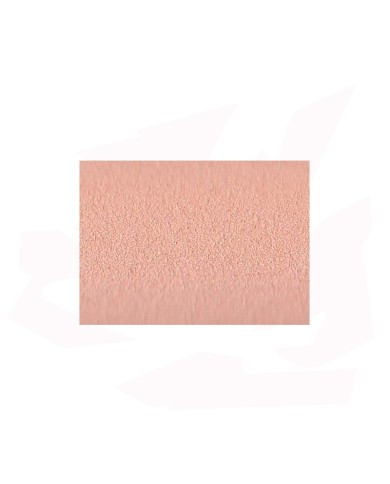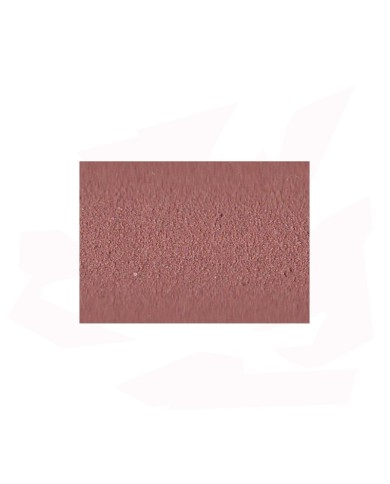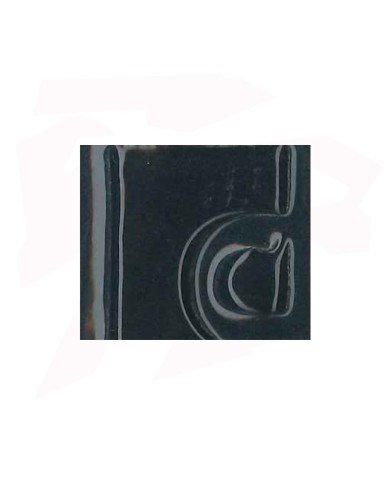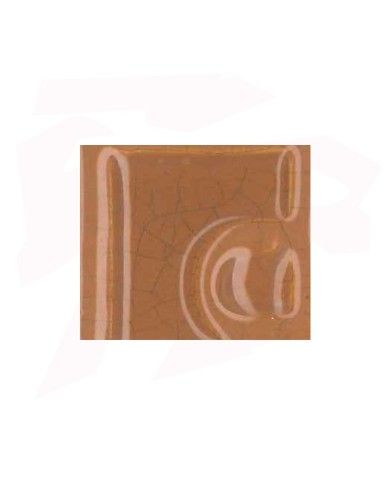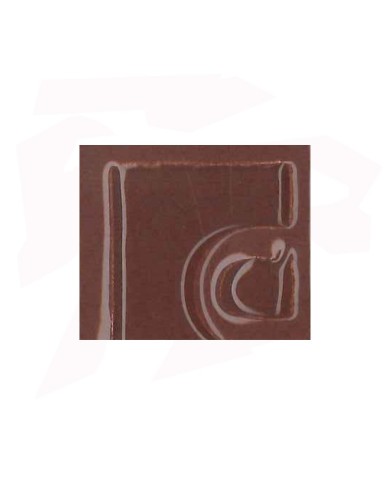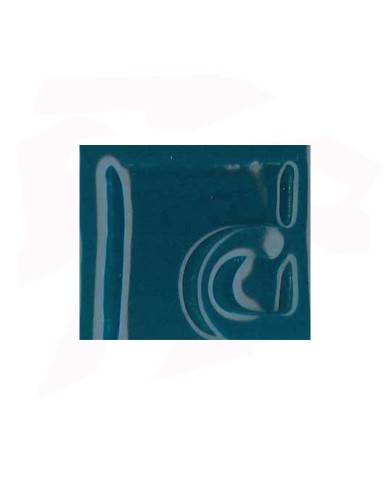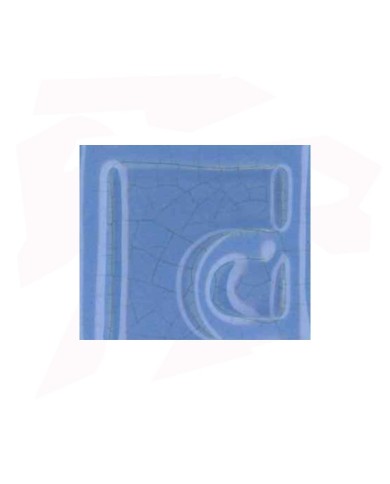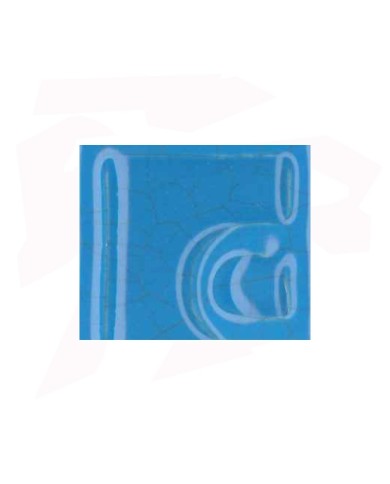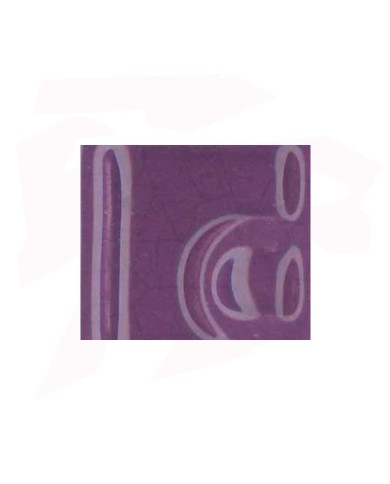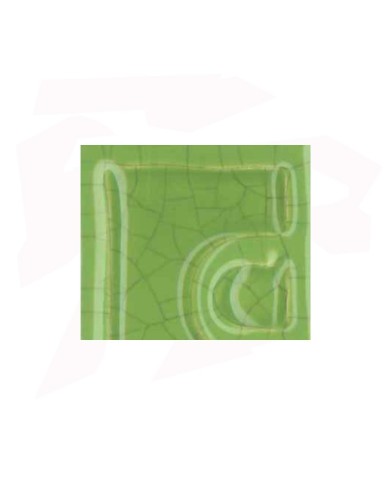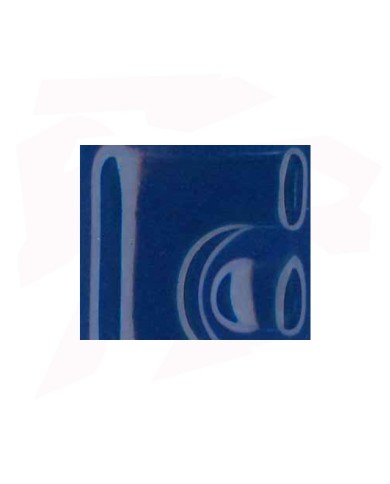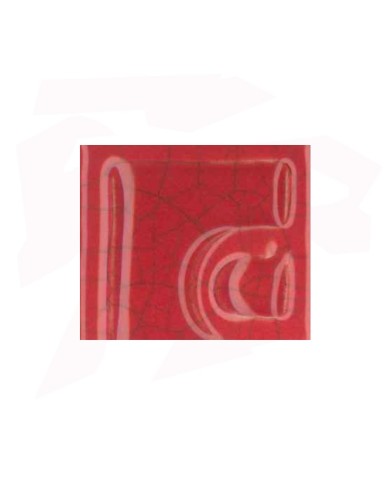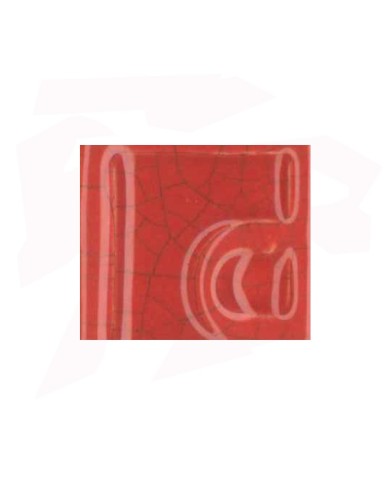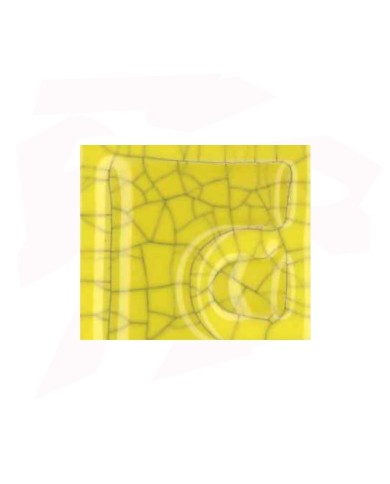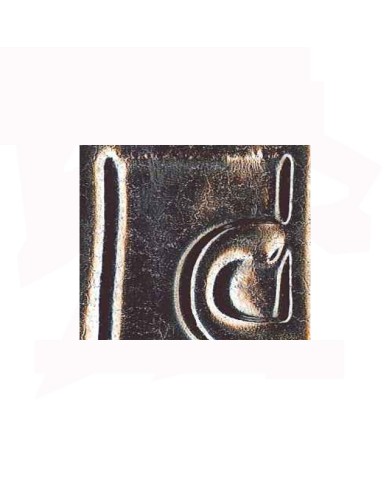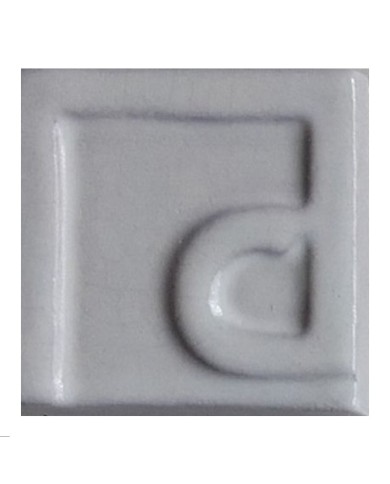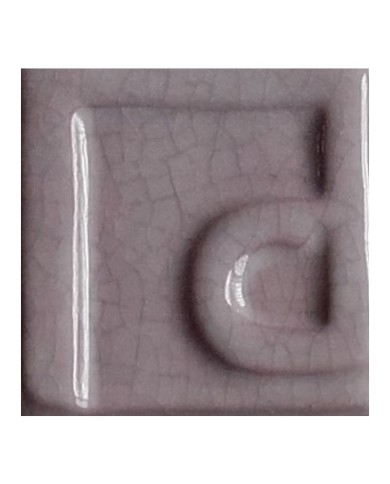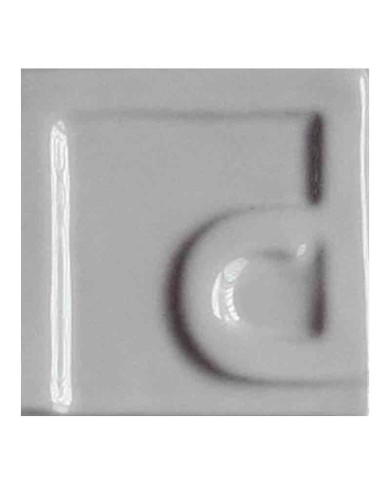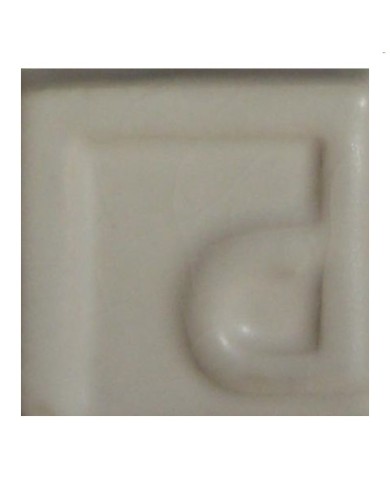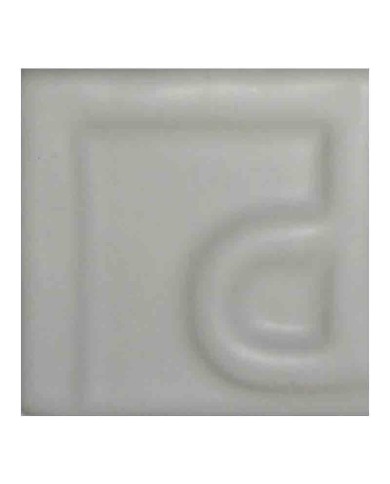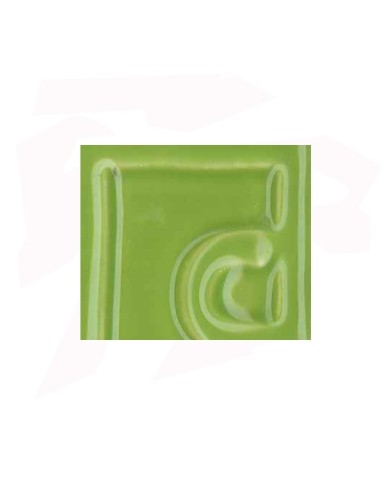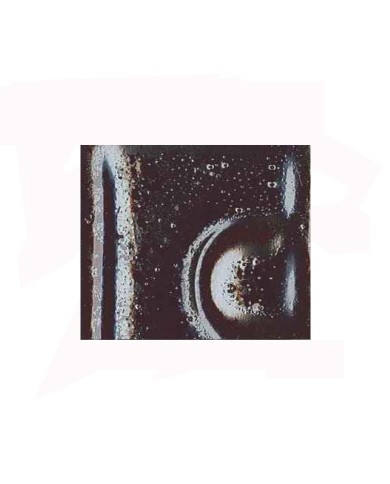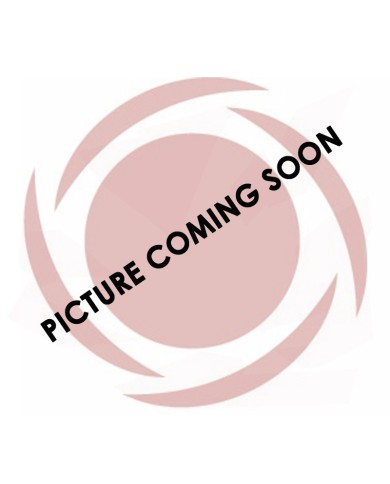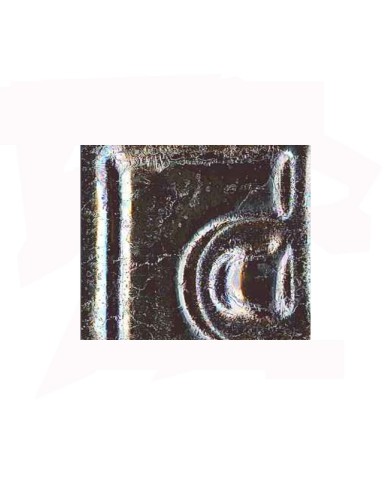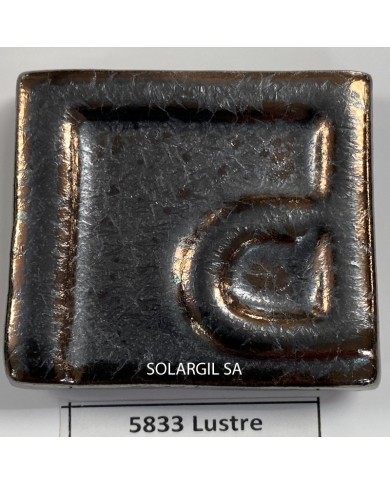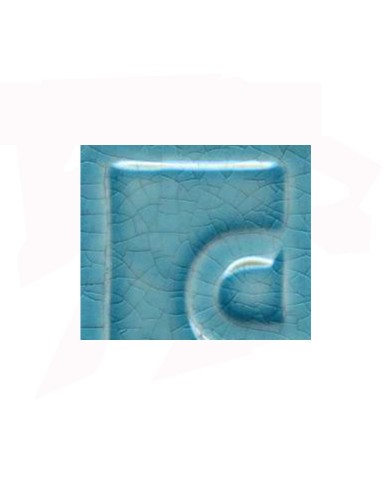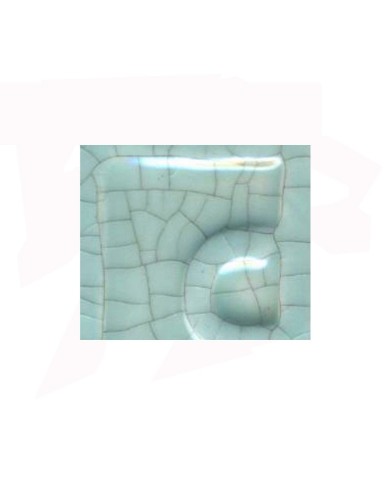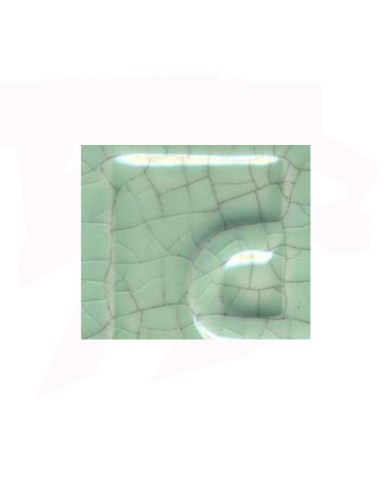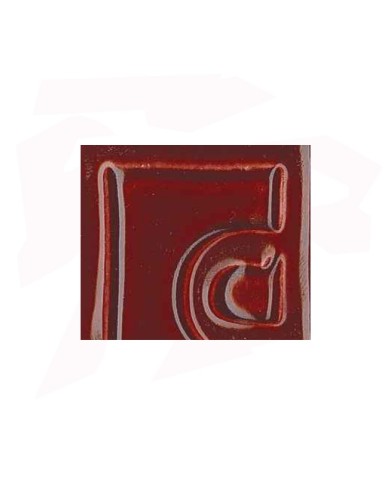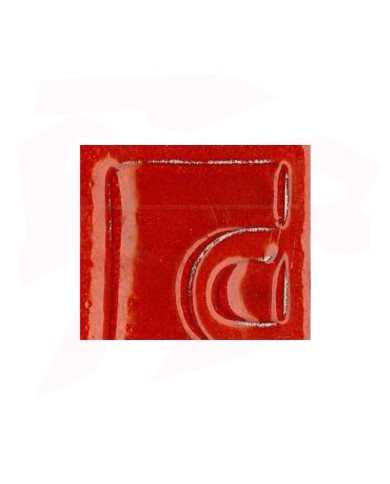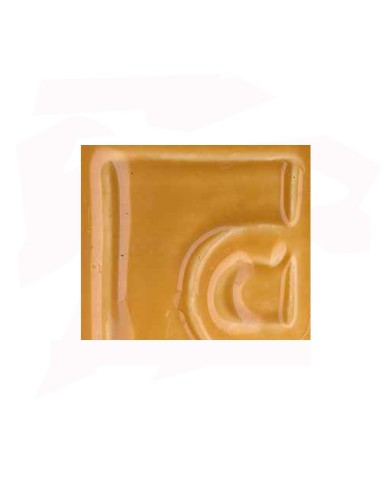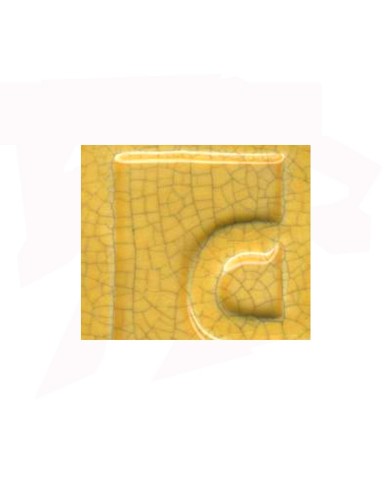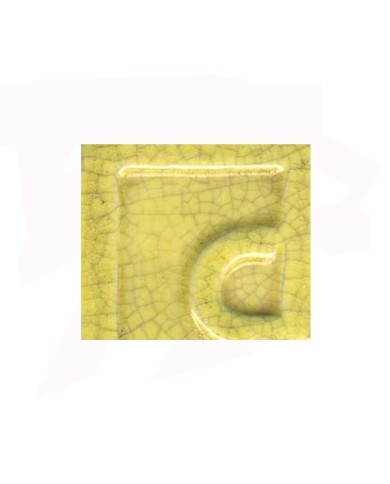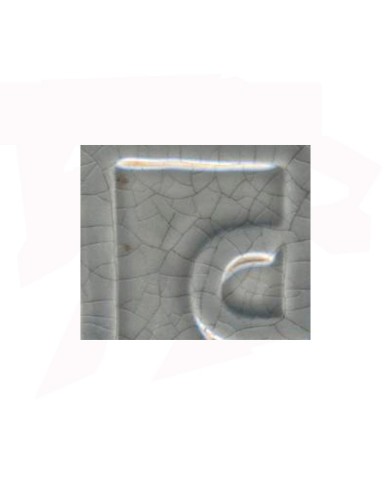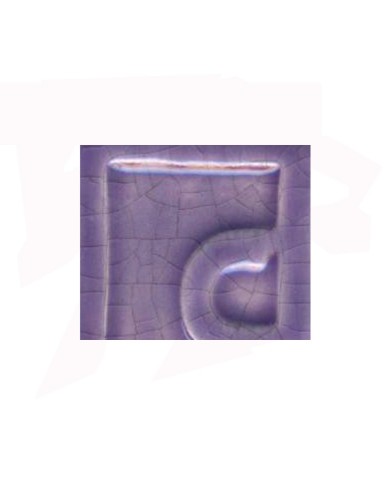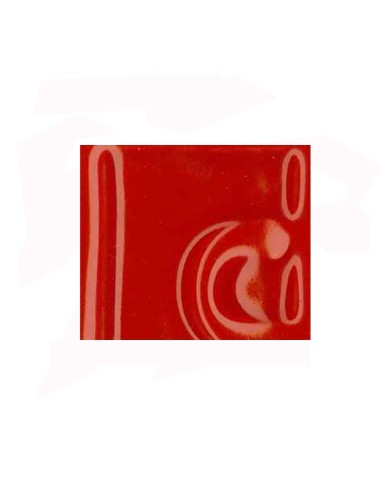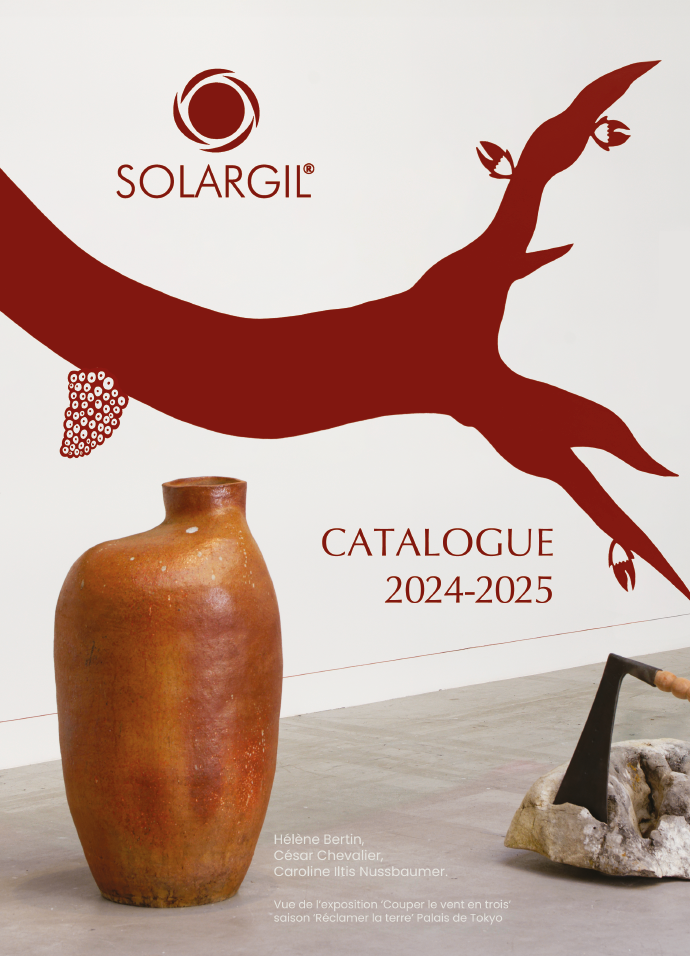Marble - CS 217
This collection of colors necessary for the "Cuerda Seca" technique includes all the colors to develop a complete palette.
Colors can mix well, except Red CS-210 and Orange CS-211, which must be pure.
To obtain "Pastel" colors, it is necessary to add an opaque white enamel which decreases the intensity of the color and makes it softer.
English green - CS 216
This collection of colors necessary for the "Cuerda Seca" technique includes all the colors to develop a complete palette.
Colors can mix well, except Red CS-210 and Orange CS-211, which must be pure.
To obtain "Pastel" colors, it is necessary to add an opaque white enamel which decreases the intensity of the color and makes it softer.
White - CS 215
This collection of colors necessary for the "Cuerda Seca" technique includes all the colors to develop a complete palette.
Colors can mix well, except Red CS-210 and Orange CS-211, which must be pure.
To obtain "Pastel" colors, it is necessary to add an opaque white enamel which decreases the intensity of the color and makes it softer.
Cobalt blue - CS 214
This collection of colors necessary for the "Cuerda Seca" technique includes all the colors to develop a complete palette.
Colors can mix well, except Red CS-210 and Orange CS-211, which must be pure.
To obtain "Pastel" colors, it is necessary to add an opaque white enamel which decreases the intensity of the color and makes it softer.
Dark brown - CS 213
This collection of colors necessary for the "Cuerda Seca" technique includes all the colors to develop a complete palette.
Colors can mix well, except Red CS-210 and Orange CS-211, which must be pure.
To obtain "Pastel" colors, it is necessary to add an opaque white enamel which decreases the intensity of the color and makes it softer.
Light brown - CS 212
This collection of colors necessary for the "Cuerda Seca" technique includes all the colors to develop a complete palette.
Colors can mix well, except Red CS-210 and Orange CS-211, which must be pure.
To obtain "Pastel" colors, it is necessary to add an opaque white enamel which decreases the intensity of the color and makes it softer.
Red - CS 210
This collection of colors necessary for the "Cuerda Seca" technique includes all the colors to develop a complete palette.
Colors can mix well, except Red CS-210 and Orange CS-211, which must be pure.
To obtain "Pastel" colors, it is necessary to add an opaque white enamel which decreases the intensity of the color and makes it softer.
Victoria green - CS 209
This collection of colors necessary for the "Cuerda Seca" technique includes all the colors to develop a complete palette.
Colors can mix well, except Red CS-210 and Orange CS-211, which must be pure.
To obtain "Pastel" colors, it is necessary to add an opaque white enamel which decreases the intensity of the color and makes it softer.
Green - CS 208
This collection of colors necessary for the "Cuerda Seca" technique includes all the colors to develop a complete palette.
Colors can mix well, except Red CS-210 and Orange CS-211, which must be pure.
To obtain "Pastel" colors, it is necessary to add an opaque white enamel which decreases the intensity of the color and makes it softer.
Yellow - CS 207
This collection of colors necessary for the "Cuerda Seca" technique includes all the colors to develop a complete palette.
Colors can mix well, except Red CS-210 and Orange CS-211, which must be pure.
To obtain "Pastel" colors, it is necessary to add an opaque white enamel which decreases the intensity of the color and makes it softer.
Blue - CS 206
This collection of colors necessary for the "Cuerda Seca" technique includes all the colors to develop a complete palette.
Colors can mix well, except Red CS-210 and Orange CS-211, which must be pure.
To obtain "Pastel" colors, it is necessary to add an opaque white enamel which decreases the intensity of the color and makes it softer.
Light brown - CS 205
This collection of colors necessary for the "Cuerda Seca" technique includes all the colors to develop a complete palette.
Colors can mix well, except Red CS-210 and Orange CS-211, which must be pure.
To obtain "Pastel" colors, it is necessary to add an opaque white enamel which decreases the intensity of the color and makes it softer.
Purple - CS 204
This collection of colors necessary for the "Cuerda Seca" technique includes all the colors to develop a complete palette.
Colors can mix well, except Red CS-210 and Orange CS-211, which must be pure.
To obtain "Pastel" colors, it is necessary to add an opaque white enamel which decreases the intensity of the color and makes it softer.
Yellow - CS 203
This collection of colors necessary for the "Cuerda Seca" technique includes all the colors to develop a complete palette.
Colors can mix well, except Red CS-210 and Orange CS-211, which must be pure.
To obtain "Pastel" colors, it is necessary to add an opaque white enamel which decreases the intensity of the color and makes it softer.
Black - CS 202
This collection of colors necessary for the "Cuerda Seca" technique includes all the colors to develop a complete palette.
Colors can mix well, except Red CS-210 and Orange CS-211, which must be pure.
To obtain "Pastel" colors, it is necessary to add an opaque white enamel which decreases the intensity of the color and makes it softer.
Eggplant - CS 201
This collection of colors necessary for the "Cuerda Seca" technique includes all the colors to develop a complete palette.
Colors can mix well, except Red CS-210 and Orange CS-211, which must be pure.
To obtain "Pastel" colors, it is necessary to add an opaque white enamel which decreases the intensity of the color and makes it softer.
Turquoise blue - CS 200
This collection of colors necessary for the "Cuerda Seca" technique includes all the colors to develop a complete palette.
Colors can mix well, except Red CS-210 and Orange CS-211, which must be pure.
To obtain "Pastel" colors, it is necessary to add an opaque white enamel which decreases the intensity of the color and makes it softer.
Transparent crackle enamel - CQ 03 (FR7)
Ceramic compound.
TRANSPARENT CRACKED
TRANSPARENT ENAMEL GLOSSY very alkaline and fondant, suitable for raku techniques or metallic reflections.
Specially recommended as ceramic covered.
With the addition of metallic oxides, characteristic colours of alkaline enamels are obtained, as in the case of the CuO for turquoise blue.
The recommended firing temperature ranges from 800-950°C.
Alkaline crackle transparent enamel - CQ 01 (FR6)
Composed of Fritte.
Cracked and shiny transparent email.
Its application is recommended on white or engobées pasta to appreciate the aged effect of cracking.
Allows decoration under enamel with burnt dye oxides.
Once the piece is cooked, it is recommended to use Judean Bitumen to bring out the cracked effect.
Other enamels can be used as aditives to increase the dilation coefficient.
The firing temperature varies between 940-980ºC.
Black CC11
Engobes range. Possibility to mix them together. Usable on raw pieces or bisquewares, for soaking or decoration.
Temperature of firing : 980-1000°C
Coefficient of expansion: 86
Free of lead
Crimson / CARMINE CC10
Engobes range. Possibility to mix them together. Usable on raw pieces or bisquewares, for soaking or decoration.
Temperature of firing : 940-1020°C
Free of lead
Sevres blue CC09
Engobes range. Possibility to mix them together. Usable on raw pieces or bisquewares, for soaking or decoration.
Temperature of firing : 940-1000°C
Free of lead
Sky blue CC08
Engobes range. Possibility to mix them together. Usable on raw pieces or bisquewares, for soaking or decoration.
Temperature of firing : 980-1000°C
Free of lead
Deep green CC07
Engobes range. Possibility to mix them together. Usable on raw pieces or bisquewares, for soaking or decoration.
Temperature of firing : 980-1000°C
Coefficient of expansion: 86
Free of lead
Light green CC06
Engobes range. Possibility to mix them together. Usable on raw pieces or bisquewares, for soaking or decoration.
Temperature of firing : 980-1000°C
Free of lead
Brown CC05
Engobes range. Possibility to mix them together. Usable on raw pieces or bisquewares, for soaking or decoration.
Temperature of firing : 940-1000°C
Free of lead
Orange CC04
Engobes range. Possibility to mix them together. Usable on raw pieces or bisquewares, for soaking or decoration.
Temperature of firing : 980-1000°C
Free of lead
Toffee CC03
Engobes range. Possibility to mix them together. Usable on raw pieces or bisquewares, for soaking or decoration.
Temperature of firing : 980-1000°C
Free of lead
Yellow CC02
Engobes range. Possibility to mix them together. Usable on raw pieces or bisquewares, for soaking or decoration.
Temperature of firing : 980-1000°C
Coefficient of expansion: 86
Free of lead
COLORED WHITE ENGOBE CC01
Engobes range.
Possibility to mix them together.
Usable on raw pieces or bisquewares, for soaking or decoration.
Temperature of firing : 940-1000°C
Free of lead
Transparent glaze - C551
Composed of Frit.
Transparent for general use, both for red earthenware and for white tiles and majolica.
Develops very well the whole range of colors.
The firing temperature varies between 980-1050ºC.
Lustre light blue
Firing temperature : 750-820°C
Ref : BLLU700
BEIGE PEARL 663/B LUSTRE 3RD FIRING BLLU663/B
Lustre beige pearl
Firing temperature : 750-820°C
Ref : BLLU663/B
YELLOW 482 LUSTRE 3RD FIRING BLLU482
Luster yellow
Firing temperature : 750-820°C
3RD FIRE MOTHER OF PEARL LUSTER BLLU457
Ref : BLLU457
ORANGE 210 LUSTRE 3RD FIRING BLLU210
Lustre orange
Firing temperature : 750-820°C
Ref : BLLU210
COBALT BLUE 702 LUSTRE 3RD FIRING BLLG702
Lustre cobalt blue
Firing temperature : 750-820°C
DARK GREEN 593LUSTRE 3RD FIRING BLLG593
Lustre dark green
Firing temperature : 750-820°C
RED 430 LUSTRE 3RD FIRING BLLG430
Luster red
Firing temperature: 750-820°C
PINK 1333 LUSTRE 3RD FIRING BLLG1333
Luster pink
Firing temperature : 750-820°C
Platinum black BLBPR00870
Cooking temperature: 750-820°C
Platinum black
Ref : BLBPR00870
Platinum lustre BLBP02802
Cooking temperature: 750-820°C
Lead bisilicate enamel - BIS PB
Composed of Frit.
Transparent glaze with lead.
For glazing ceramic pottery and artistic pieces in white or red clay.
It can be used in monocuisson. Recommended firing temperature, between 950-1000ºC.
BASE5 RAKU GLAZE BORO ALCALINA
Base boro alcaline transparente BASE 5
BASE4 RAKU GLAZE LEAD ALCALINA
Firing temperature: 800-900°C
ENGOBE WHITE ATOMISED AUBAGNE
Fragmented white engobe AUBAGNE
Deep yellow A135
Cadmium glaze with lead
Temperature of firing 960-1020°C
Cadmium yellow enamel - A 133 / N
For enamelling ceramic pieces in red or white clay.
Firing temperature between 950-1020°C.
UNDERGLAZE FOR TILES AND BRICKS/SCULPTURE 6031 PEANUT
Peanut-6031
Without lead
GROUPE I
Firing temperature: 980°C
UNDERGLAZE FOR TILES AND BRICKS/SCULPTURE 6029 GREY SILVER
Without lead
GROUPE I
Firing temperature: 980°C
UNDERGLAZE FOR TILES AND BRICKS/SCULPTURE 6027 OCHRE
Ochre-6027
Without lead
GROUPE I
Firing temperature: 980°C
UNDERGLAZE FOR TILES AND BRICKS/SCULPTURE 6026 GREY BEIGE DARK
Without lead
GROUPE I
Firing temperature: 980°C
UNDERGLAZE FOR TILES AND BRICKS/SCULPTURE 6024 GREY BEIGE
Without lead
GROUPE I
Firing temperature: 980°C
UNDERGLAZE FOR TILES AND BRICKS/SCULPTURE 6023 GREY LINEN
Without lead
GROUPE I
Firing temperature: 980°C
UNDERGLAZE FOR TILES AND BRICKS/SCULPTURE 6022 GREY SLATE
Grey slate-6022
Without lead
GROUPE I
Firing temperature: 980°C
UNDERGLAZE FOR TILES AND BRICKS/SCULPTURE 6021 WHITE
White -6021
Without lead
GROUPE I
Firing temperature: 980°C
UNDERGLAZE FOR TILES AND BRICKS/SCULPTURE 6020 GREY MARENGO
Grey marengo - 6020
Without lead
GROUPE I
Firing temperature: 980°C
UNDERGLAZE FOR TILES AND BRICKS/SCULPTURE 6019 ANTHRACITE
Anthracite-6019
Without lead
GROUPE I
Firing temperature: 980°C
UNDERGLAZE FOR TILES AND BRICKS/SCULPTURE 6018 CHOCOLATE
Chocolate -6018
Without lead
GROUPE I
Firing temperature: 980°C
UNDERGLAZE FOR TILES AND BRICKS/SCULPTURE 6016 BROWN CLEAR
Without lead
GROUPE I
Firing temperature: 980°C
UNDERGLAZE FOR TILES AND BRICKS/SCULPTURE 6014 TERRE CUITE
Terre cuite-6014
Without lead
GROUPE I
Firing temperature: 980°C
Salmon -6013
Without lead
GROUPE I
Firing temperature: 980°C
Clear salmon -6012
Without lead
GROUPE I
Firing temperature: 980°C
Aubergine-6011
Without lead
GROUPE I
Firing temperature: 980°C
Black liquorice cracked - 5942 (ex E31018/12 )
Opaque glaze without lead.
Temperature of firing 980°C
Brown camel cracked - 5940 (ex E-31018/10 )
Opaque glaze without lead.
Temperature of firing 980°C
Brown auburn cracked - 5940
Opaque glaze without lead.
Temperature of firing 980°C
Blue "duck"cracked - 5939 (ex E31018/9 )
Opaque glaze without lead.
Temperature of firing 980°C
Blue sky cracked - 5938 (ex E31018/8 )
Opaque glaze without lead.
Temperature of firing 980°C
Blue celestial cracked - 5937 (ex E31018/7 )
Opaque glaze without lead.
Temperature of firing 980°C
Dark purple cracked - 5936 (ex E31018/6 )
Opaque glaze without lead.
Temperature of firing 980°C
Green "parrot" cracked - 5935 (ex E31018/5 )
Opaque glaze without lead.
Temperature of firing 980°C
Blue "king" cracked - 5934 (ex E31018/4 )
Opaque glaze without lead.
Temperature of firing 980°C
Red cracked-5933 (ex E31018/3 )
Opaque glaze without lead.
Temperature of firing 980°C
Red grenadine cracked - 5932 (ex E31018/2 )
Opaque glaze without lead.
Temperature of firing 980°C
Yellow lemon cracked - 5931
Opaque glaze without lead.
Temperature of firing 980°C
Lustre platine ( Ex E-11050/38)
GROUPE III
Firing temperature: 850-990°C
Matt white crackle enamel - 5913
For glazing red or white earthenware.
Develops colors very well.
The firing temperature varies between 960-1020°C.
Glossy and crackled opaque white enamel - 5895
For enamelling ceramic pieces in white or red clay.
Recommended firing temperature between 980 and 1000°C.
Antique ivory white enamel - 5894
Opaque lead free.
For glazing red or white earthenware.
Develops colors very well.
The firing temperature varies between 950 and 1020°C.
Satin transparent glaze - 5888
Without lead.
For enamelling ceramic pieces in red or white clay.La température de cuisson conseillée est de 980°C.
The recommended firing temperature is 980°C.
Matt white opaque enamel - 5880
For glazing red or white earthenware.
Develops colors very well.
The firing temperature varies between 940-1050°C.
Green pistachio transparent enamel - 5868
Range of colored transparent enamels.
They can be applied on white or red engobed paste.
Firing temperature 980 - 1020°C.
Luster 5841
Advice :
Firing temperature : 980-990°C
Mentions :
Presence of lead. Use only for decorative production
Lustre 5839
Avice :
Firing temperature : 980-990°C
Mentions :
Presence of lead. Use only for decorative production
Lustre 5834
Temperature for firing : 850-1000°C
Presence of lead. Use only for decorative production
Turquoise blue 5813
Cracked bright transparent glaze
Advice:
Temperature of firing : 960.-1020°C
Mentions :
Presence of lead. Use only for decorative production
Glaze Turquoise green 5811
Advise :
Temperature of firing : 960-1020°C
Mentions :
Presence of lead. Use only for decorative production
Groupe III with lead
Clear turquoise green - 5785 crackle
Groupe III
Firing temperature 960-1020°C
Burgundy wine transparent enamel - 5762/F
Range of colored transparent enamels.
They can be applied on white or red engobed paste.
Firing temperature 980 - 1020°C.
Red 5747 ( In replacement of E921047)
Firing temperature:960-980°C
Mentions :
Presence of lead. Use only for decorative production
Glaze Beige 5723
Transparent glaze without lead
Advice :
Temperature of firing : 980-1050°C
Mentions :
GROUPE I
Free of lead
Glaze Orange 5678 crackle
Bright transparent coloured glaze
Advice :
Temperature of firing : 960-1020°C
Mentions :
Presence of lead. Use only for decorative production
Glaze Yellow 5669 crackle
Bright transparent coloured glaze
Advice :
Temperature of firing : 960-1020°C
Mentions :
Presence of lead. Use only for decorative production
Glaze Grey 5667
Bright transparent coloured glaze
Advice :
Temperature of firing : 960-1020°C
Mentions :
Presence of lead. Use only for decorative production
Glaze Lilac 5666
Bright transparent coloured glaze
Advice :
Temperature of firing : 960-1020°C
Mentions :
Presence of lead. Use only for decorative production
Red transparent enamel - 5658
Range of colored transparent enamels.
They can be applied on white or red engobed paste.
Firing temperature 980 - 1020°C.
ENGOBE FOR BISQUEWARE 5657
Engobe for bisqueware
Ref : 5657

